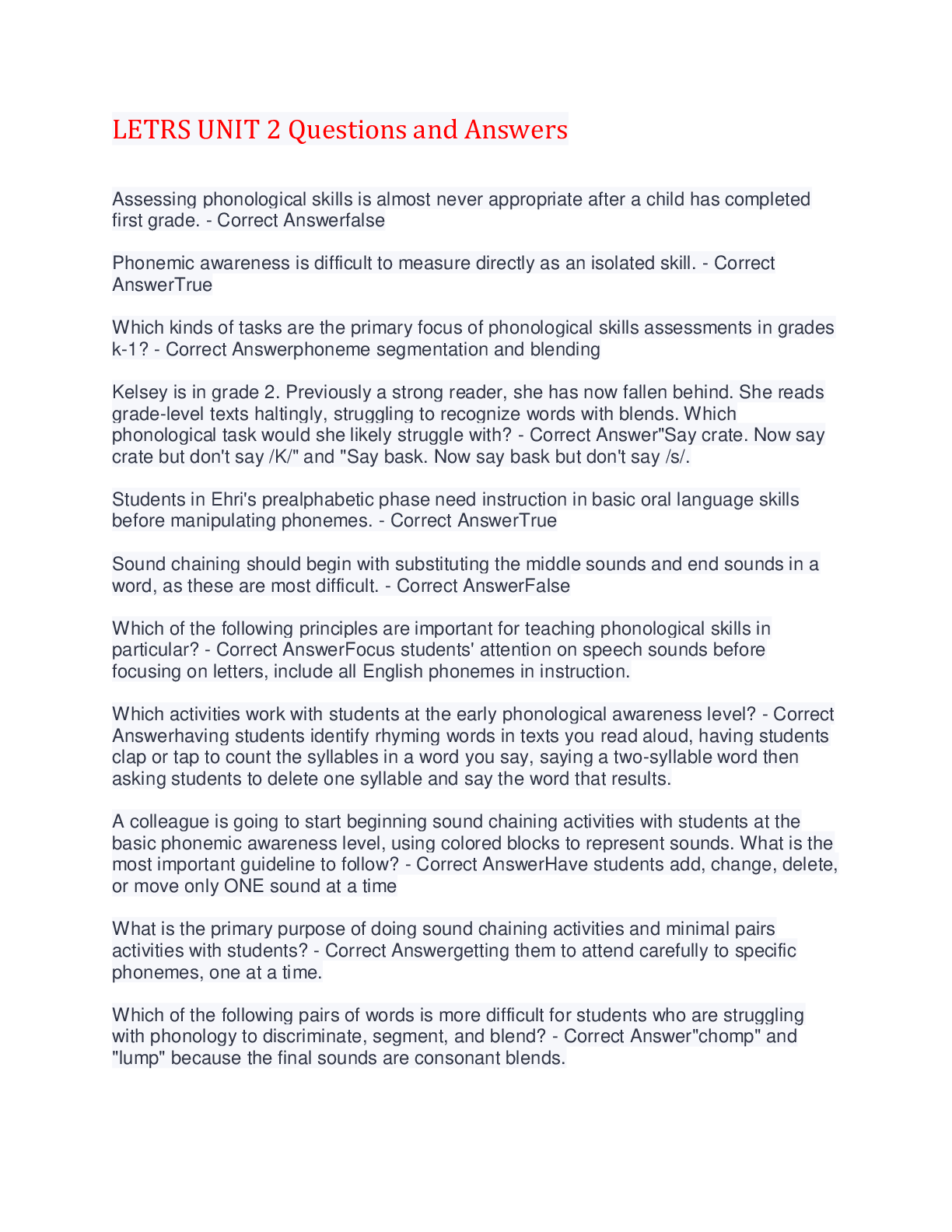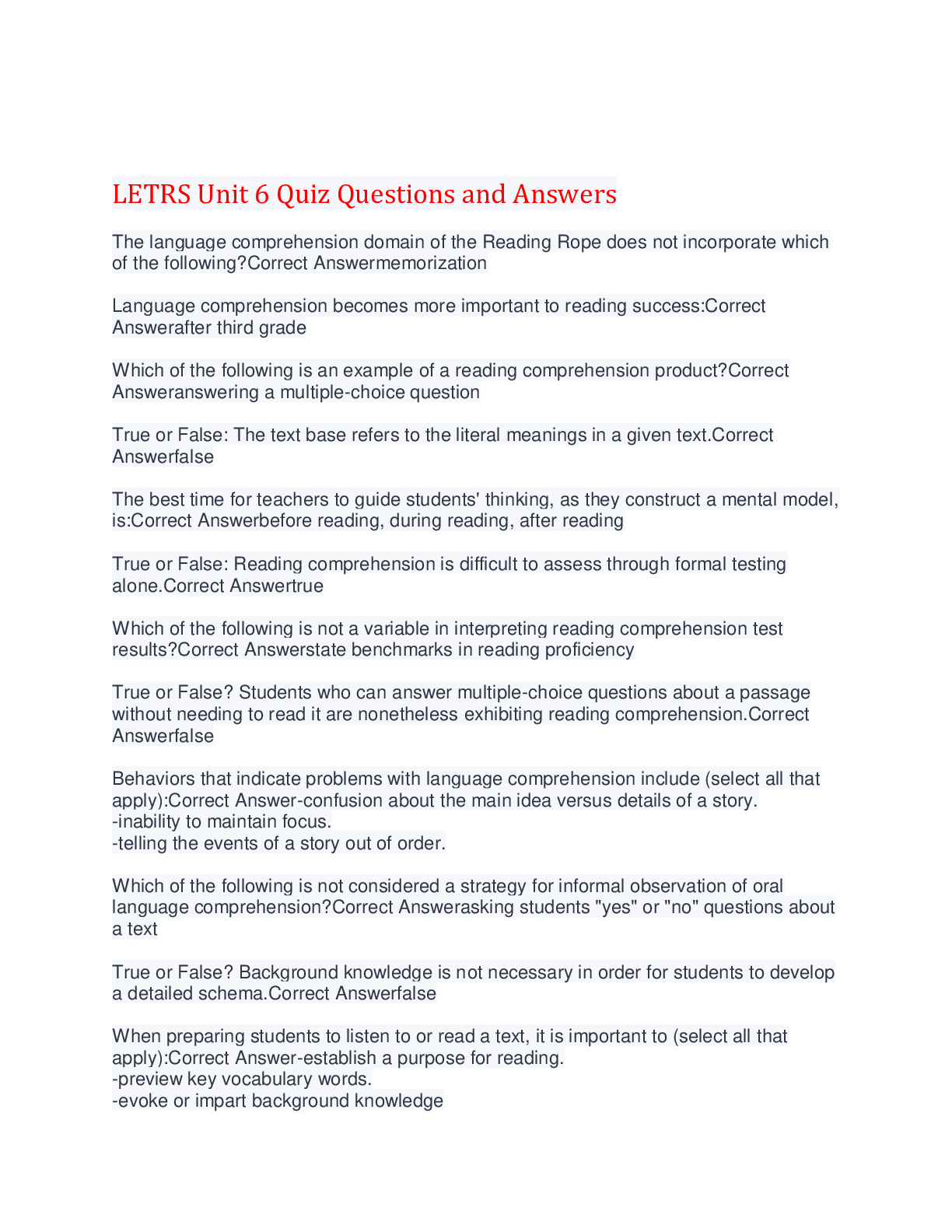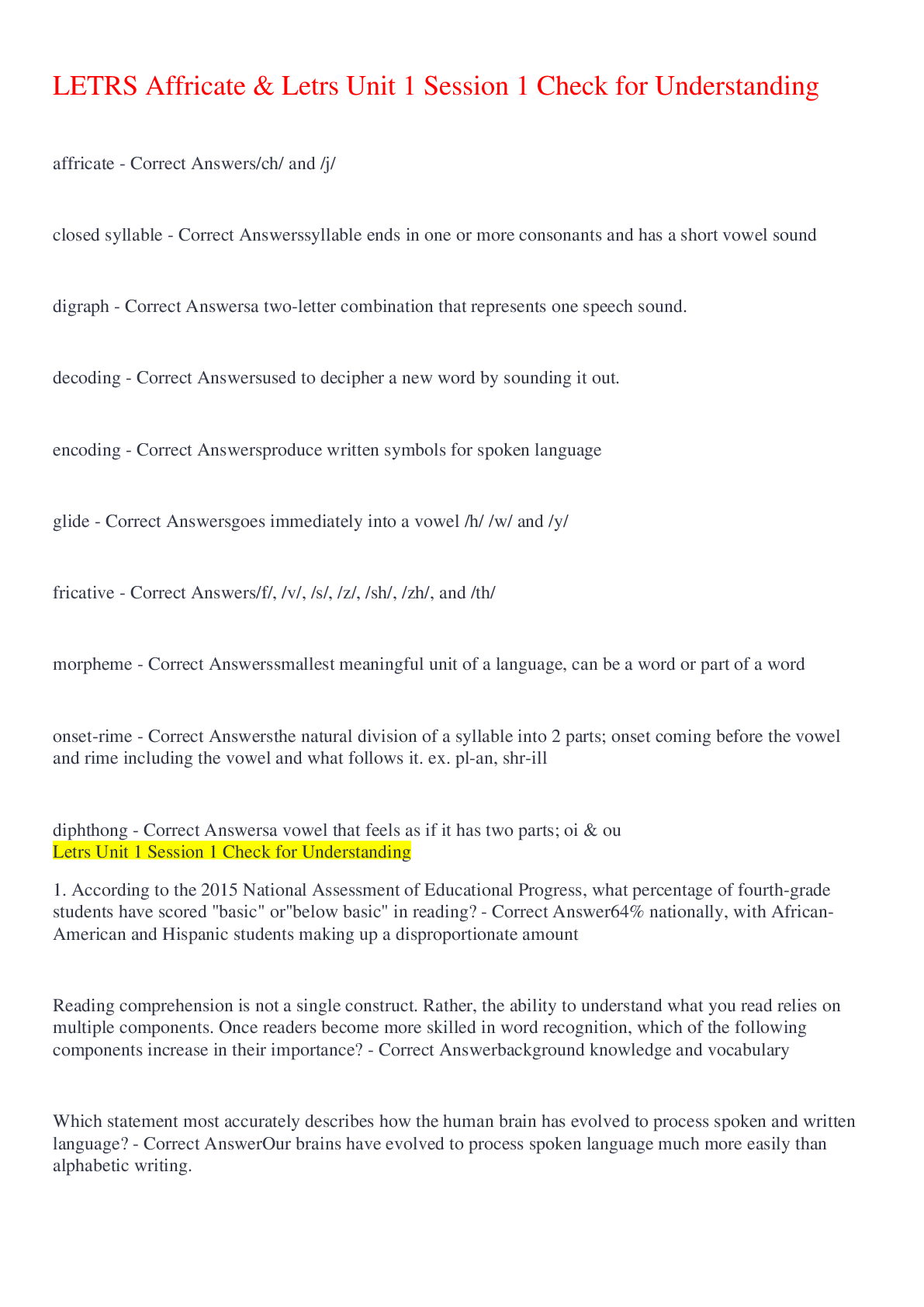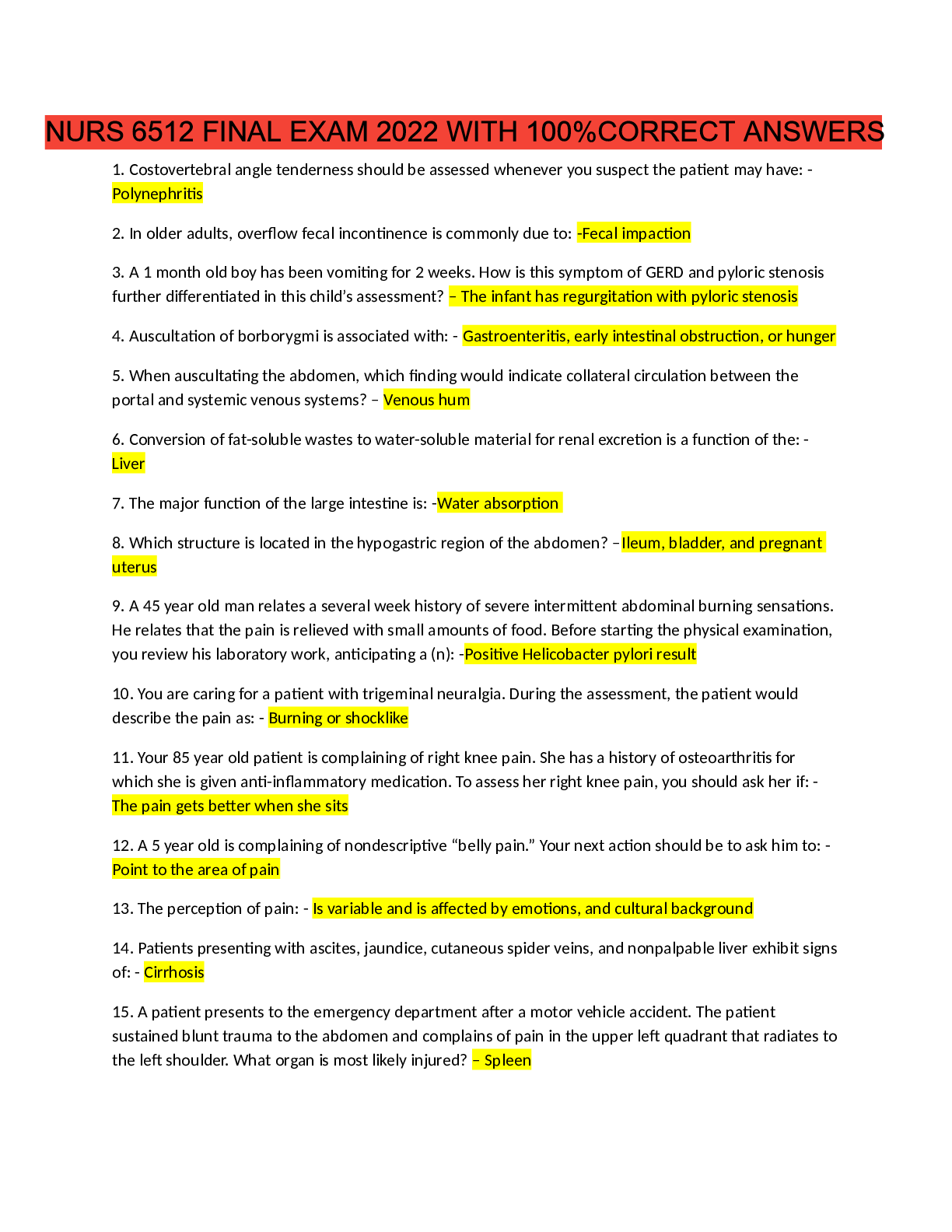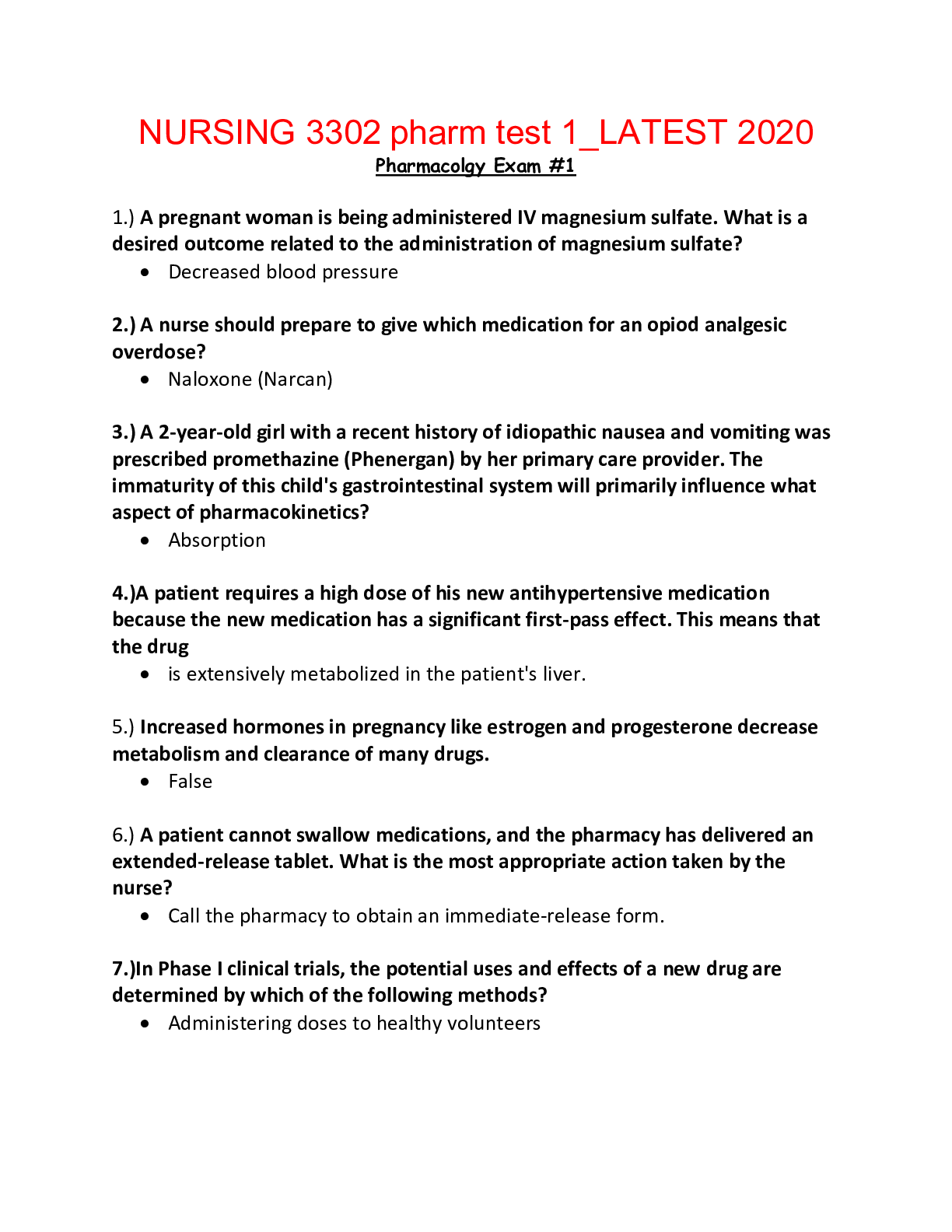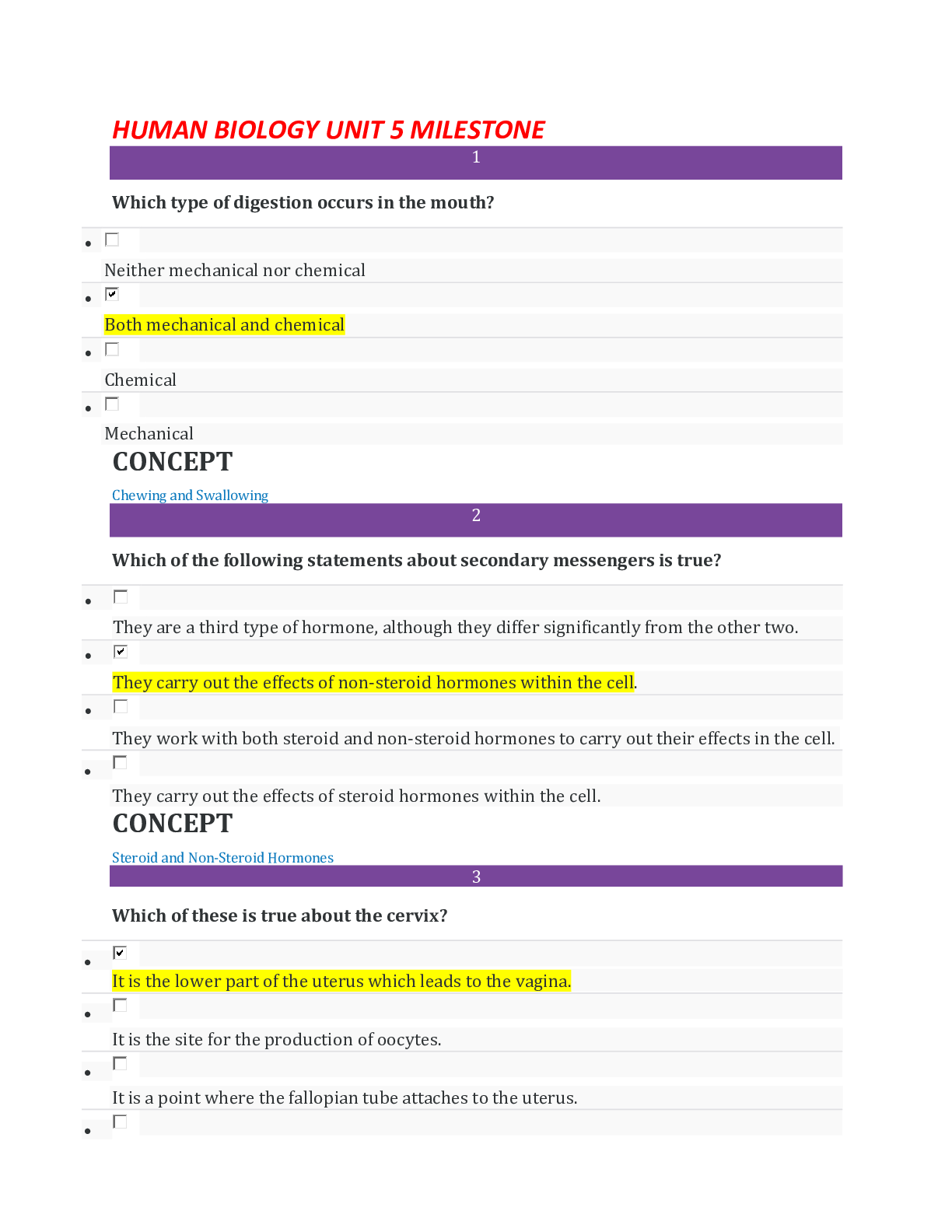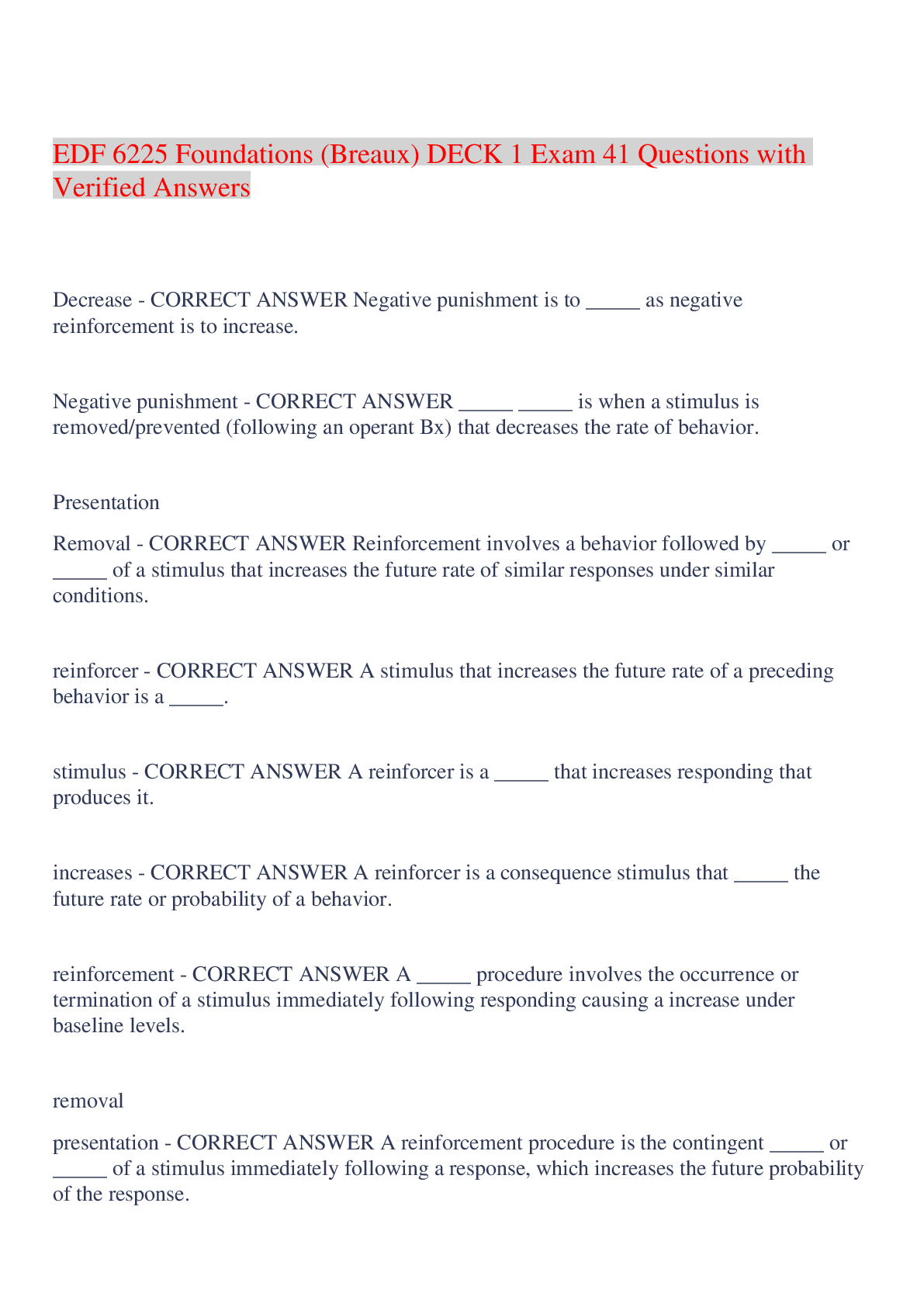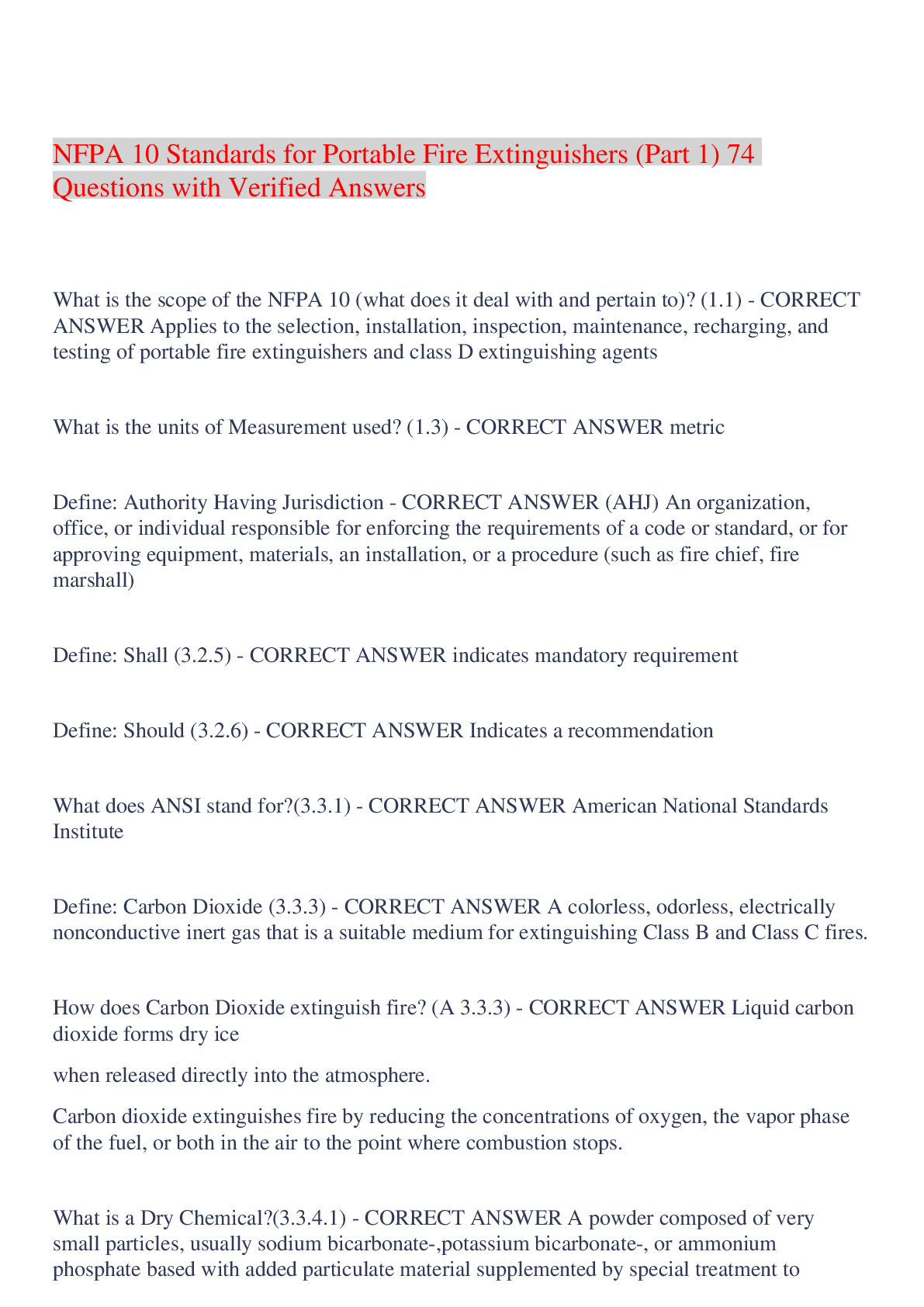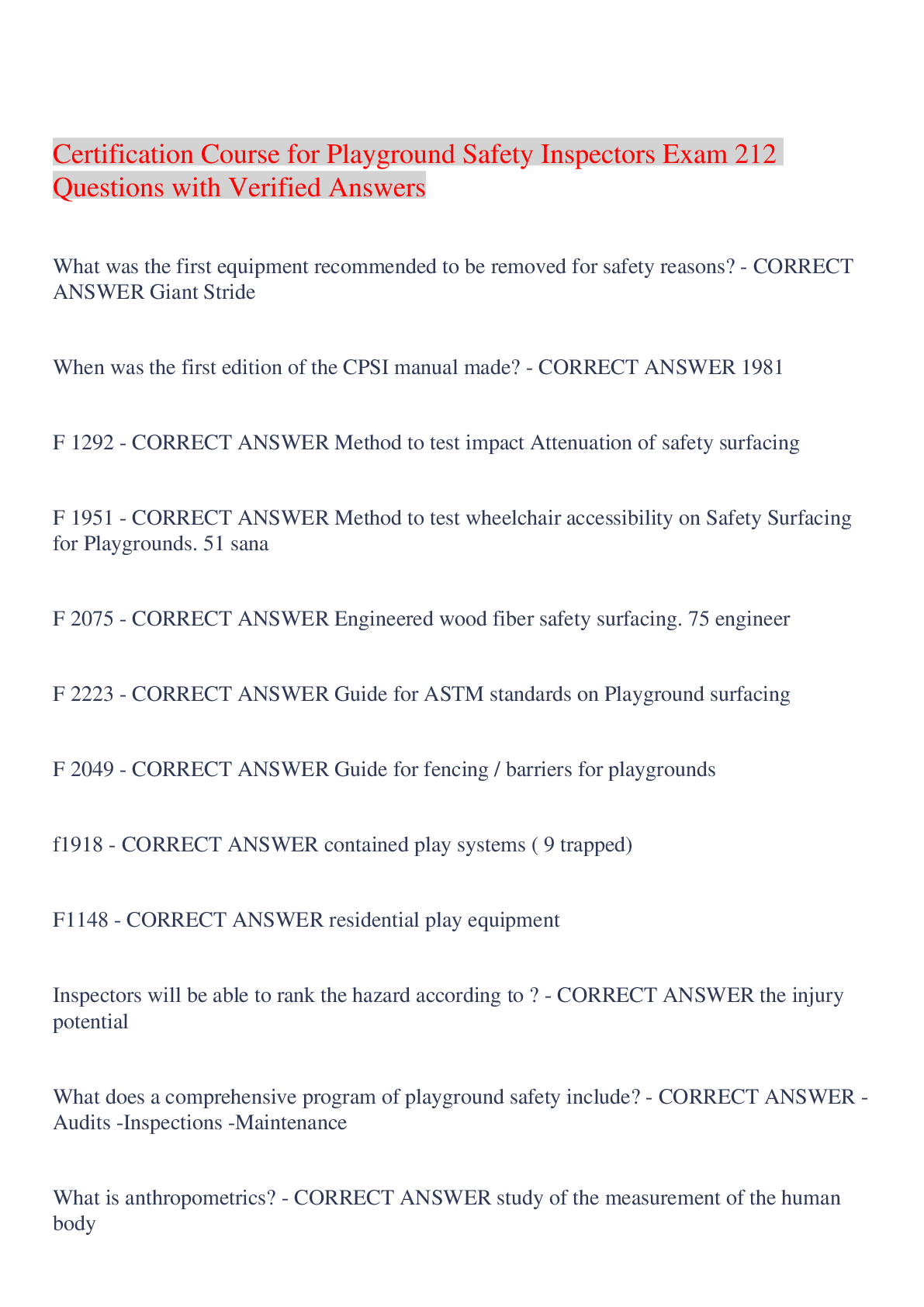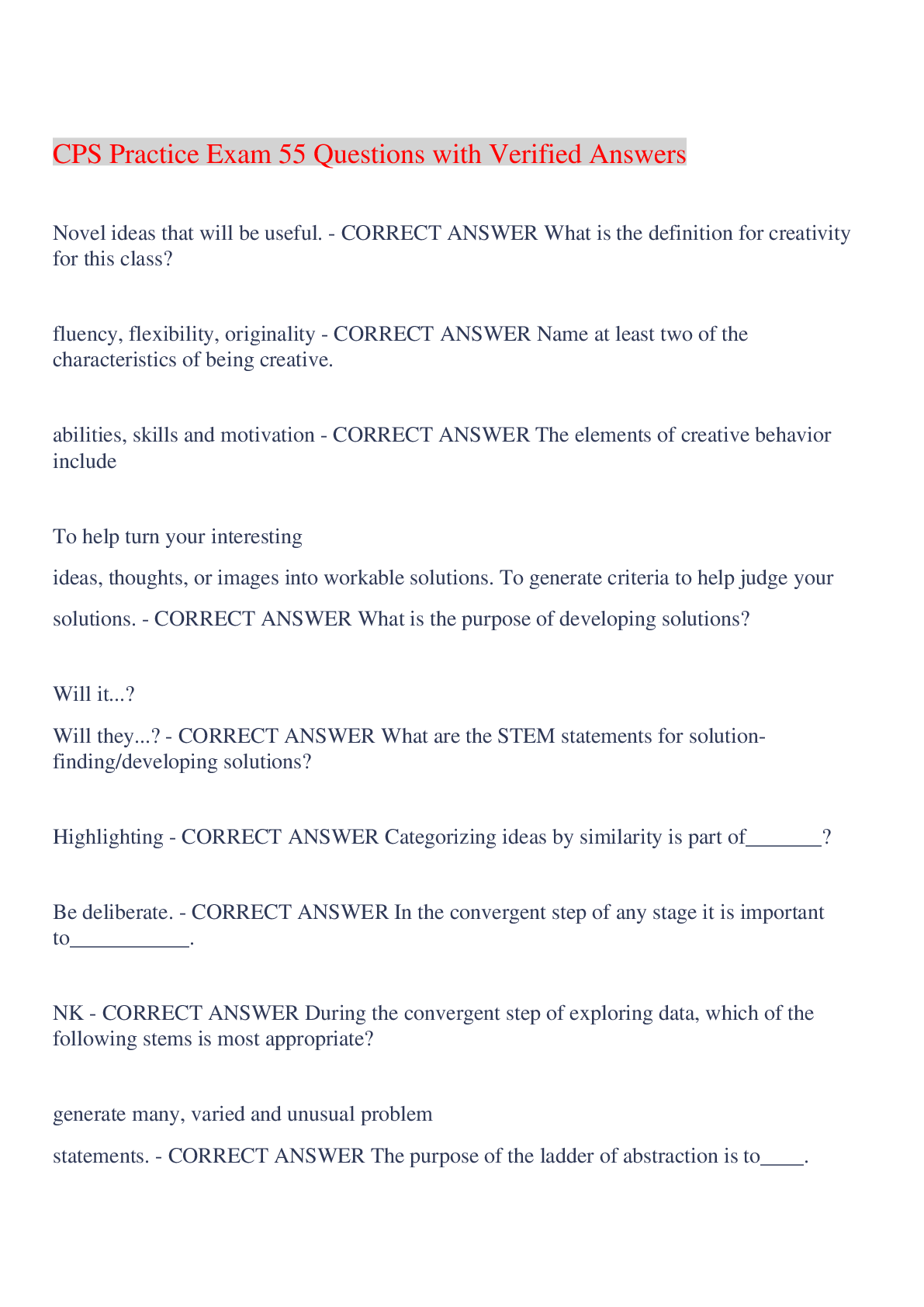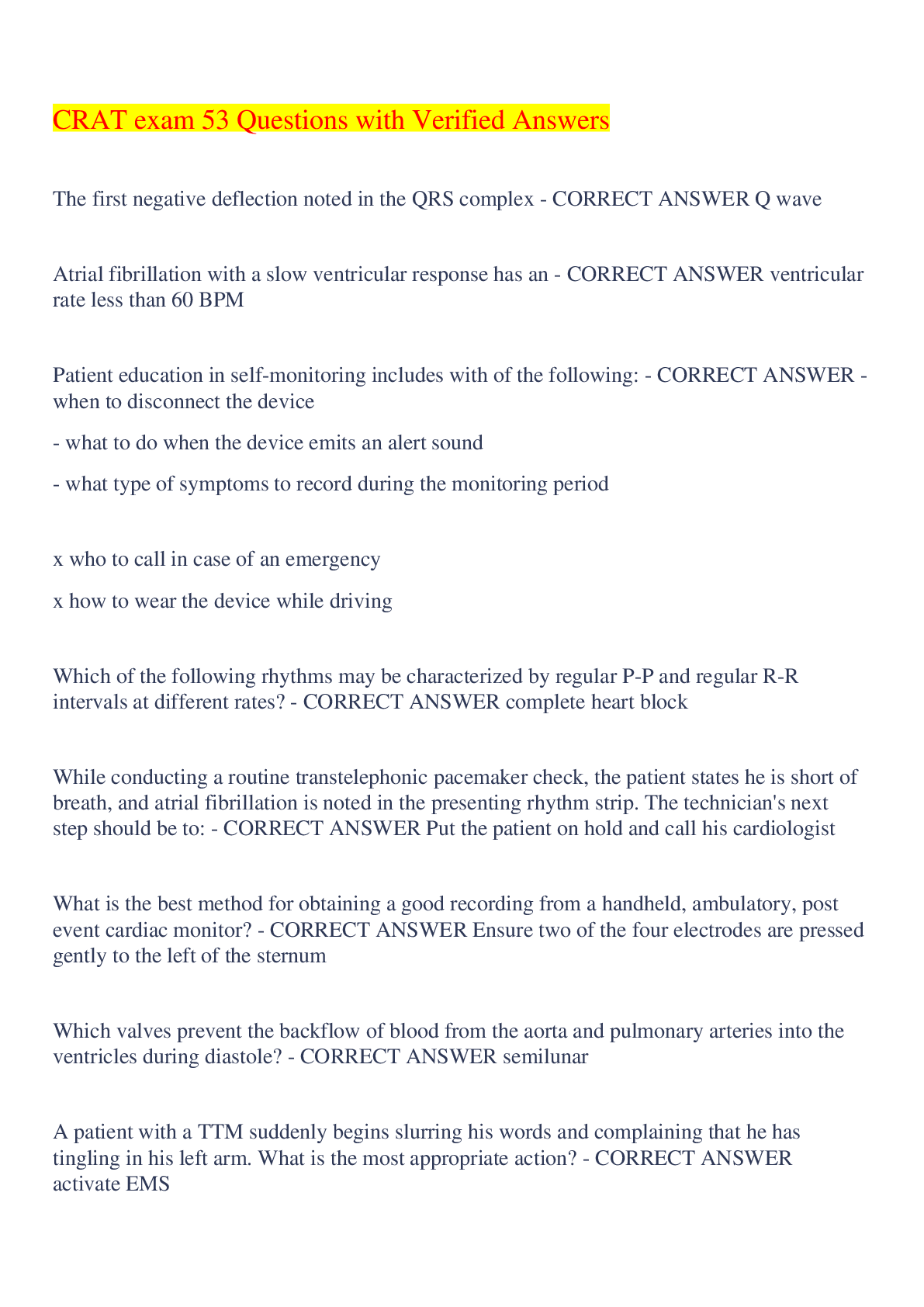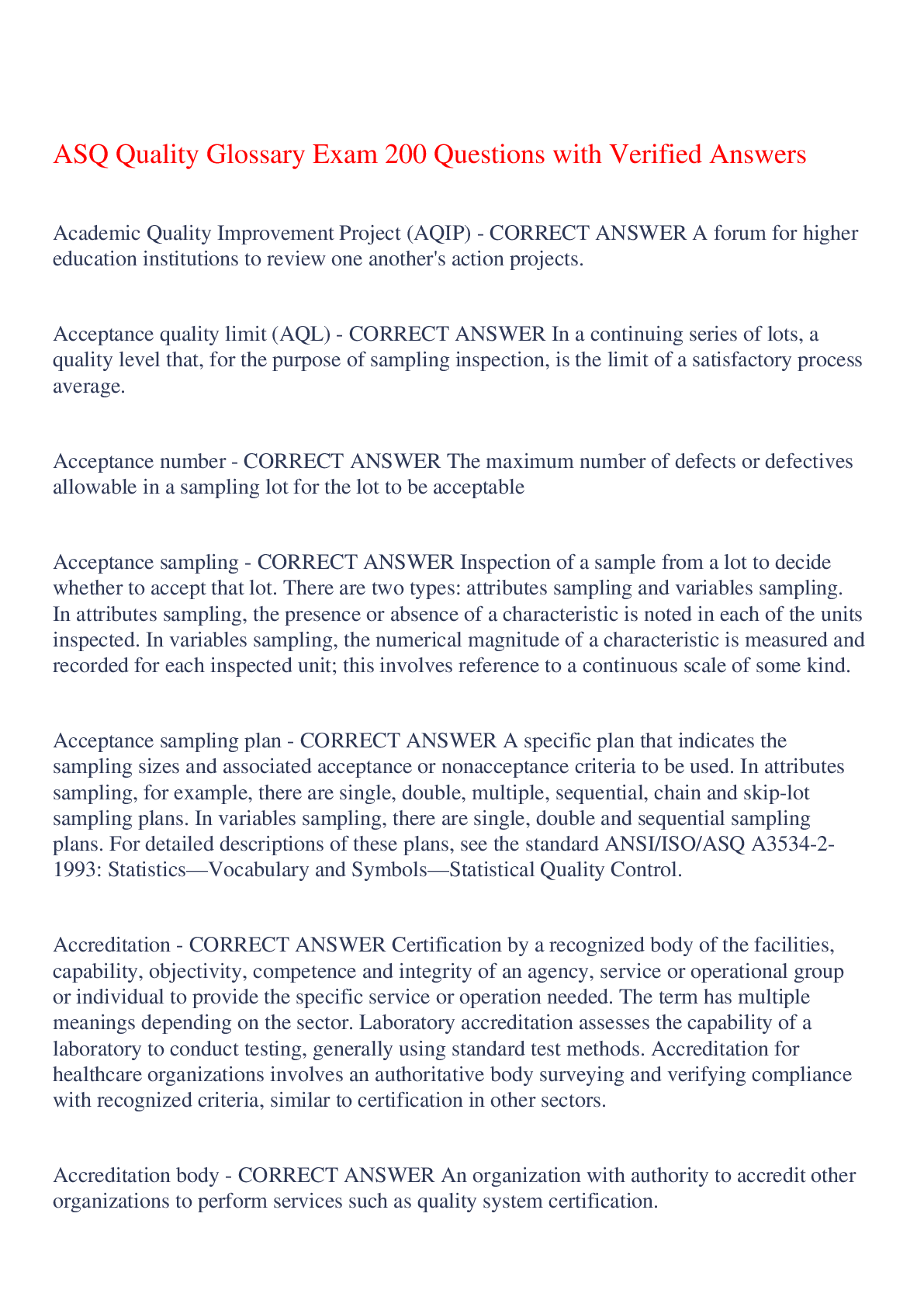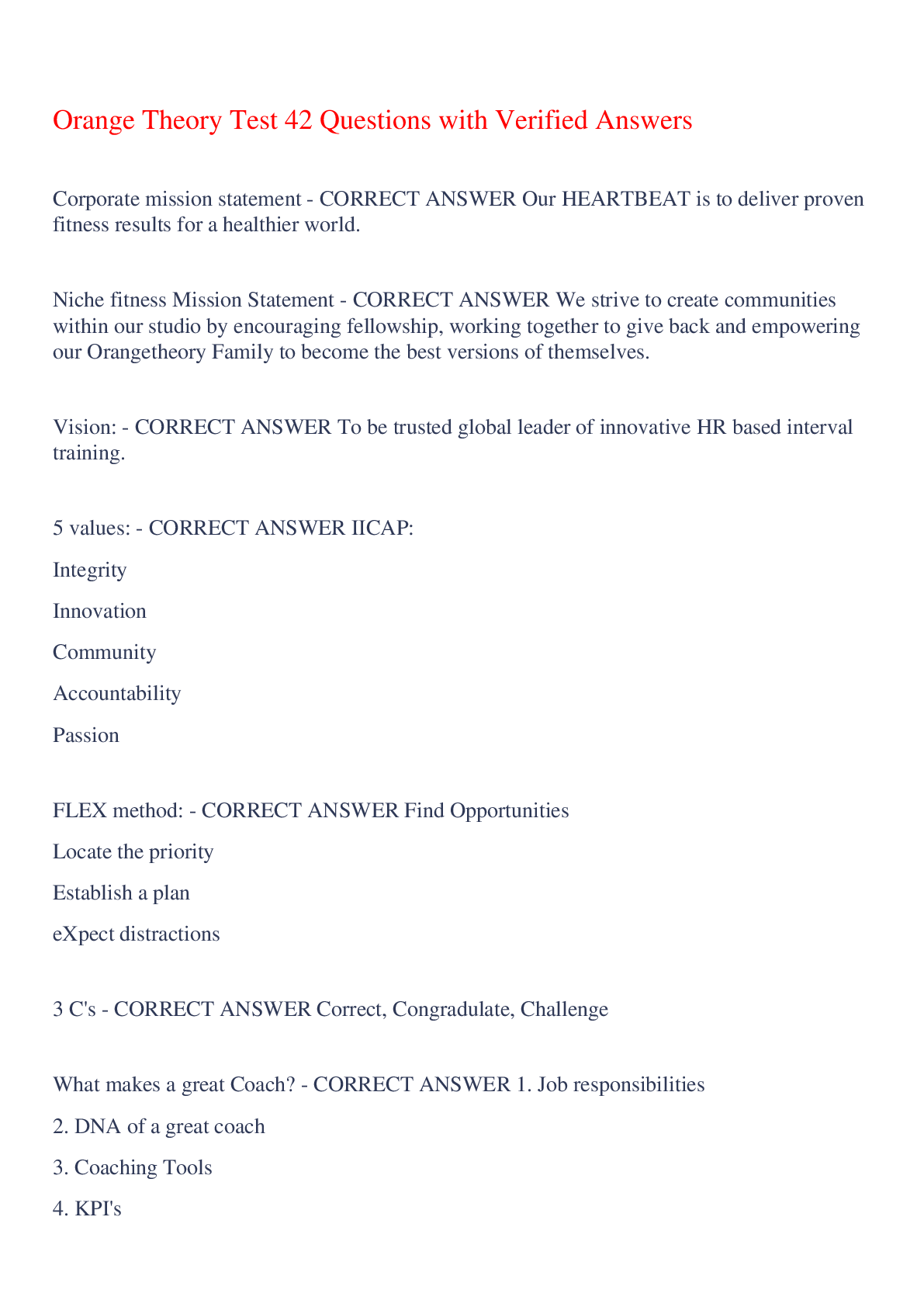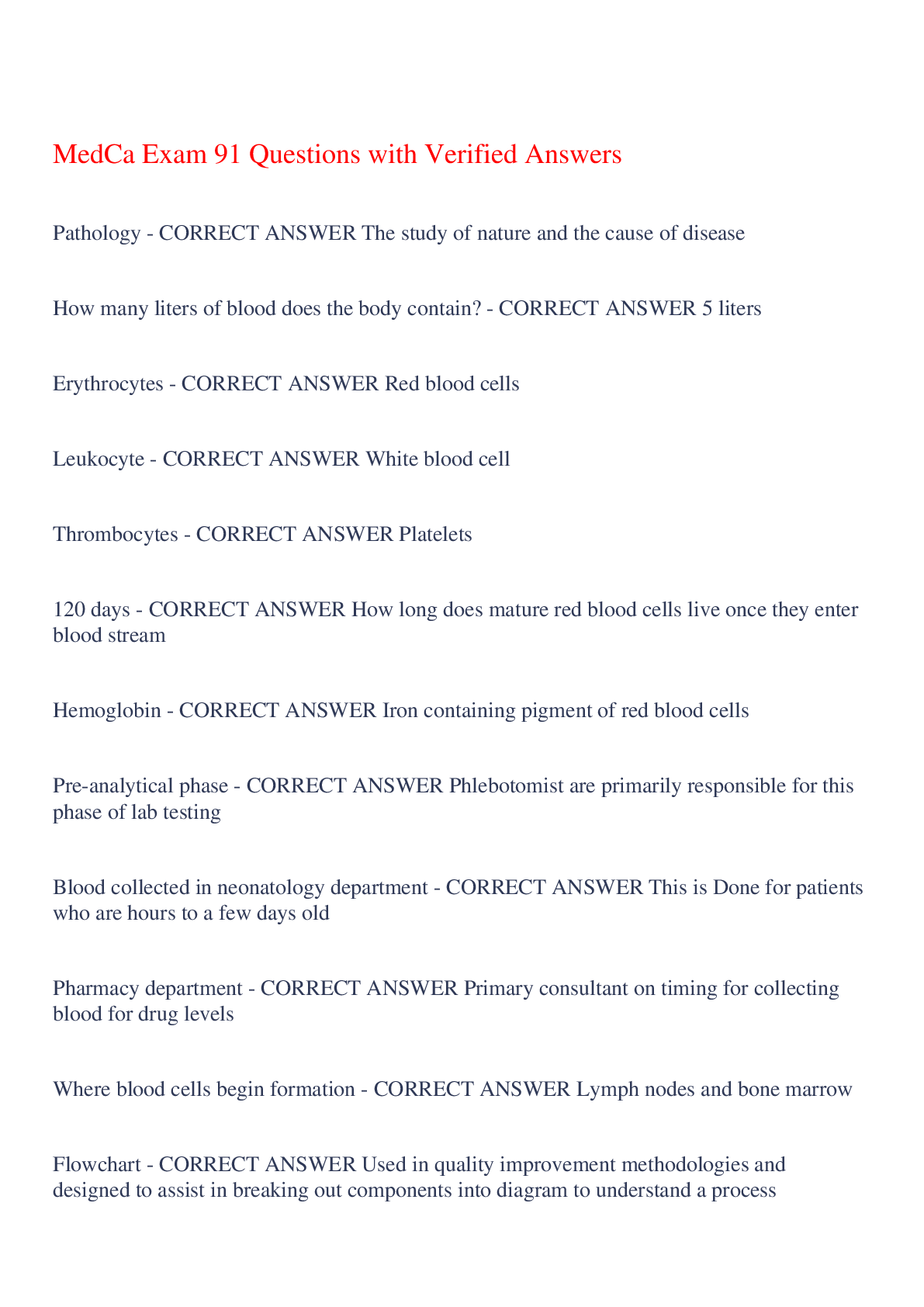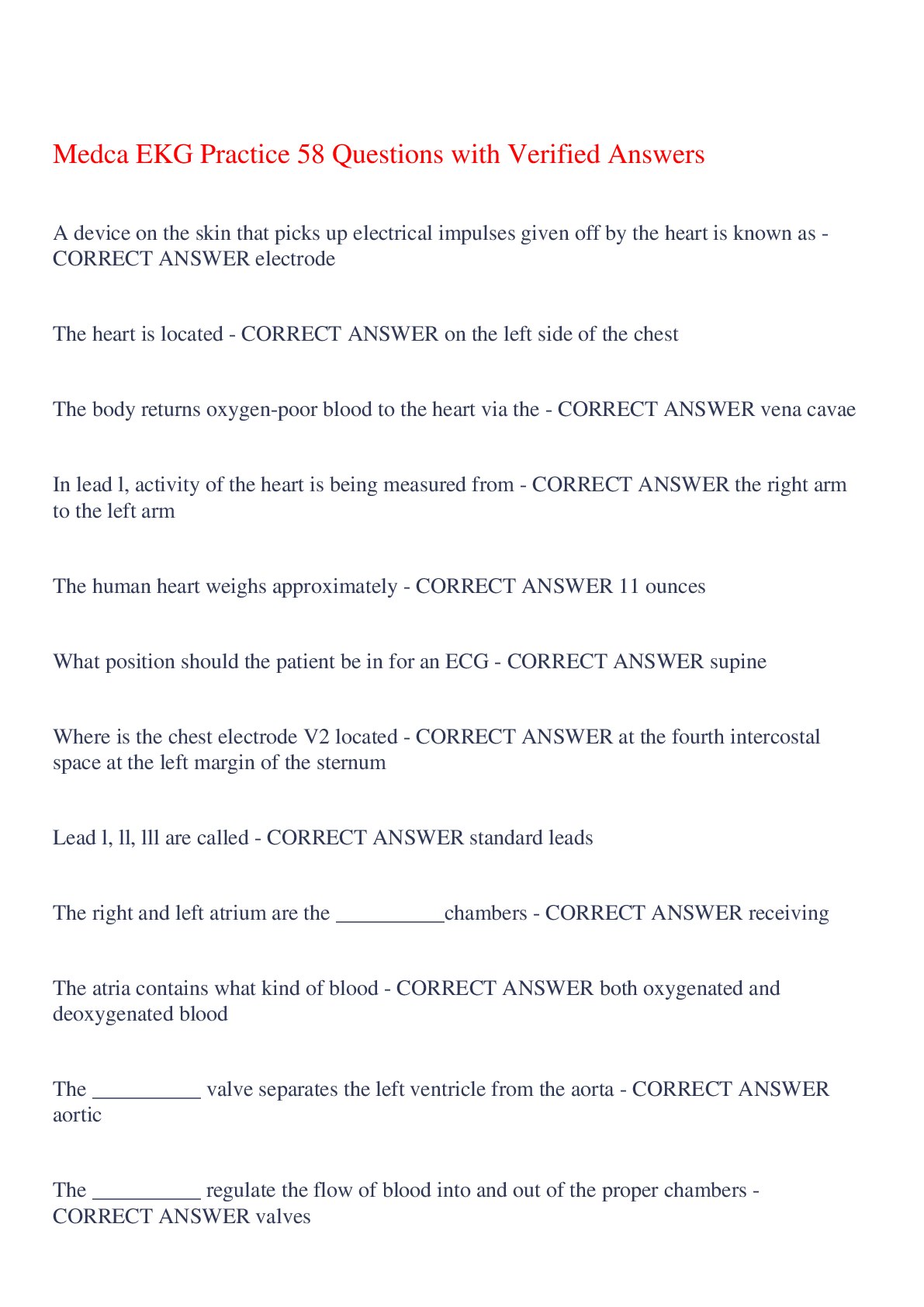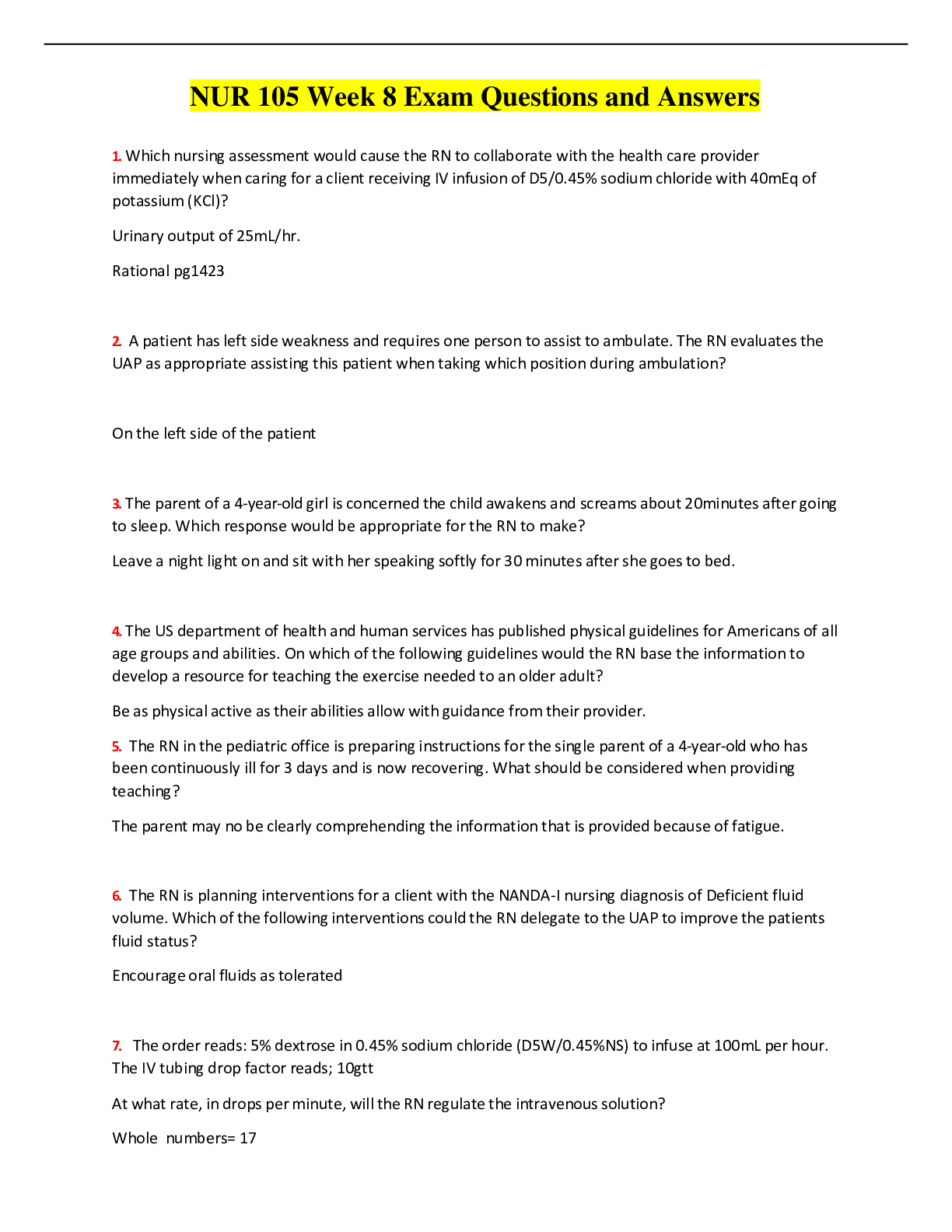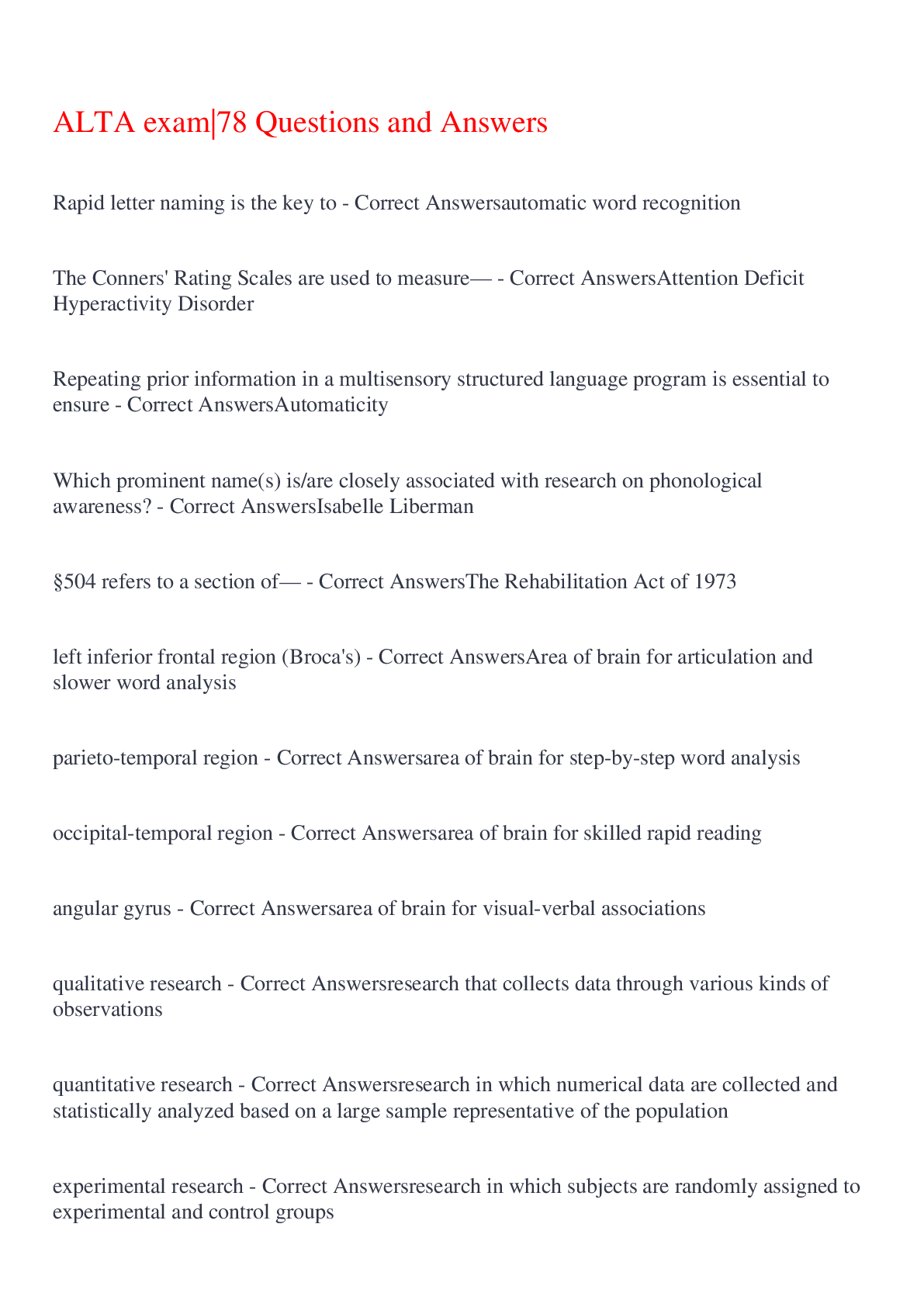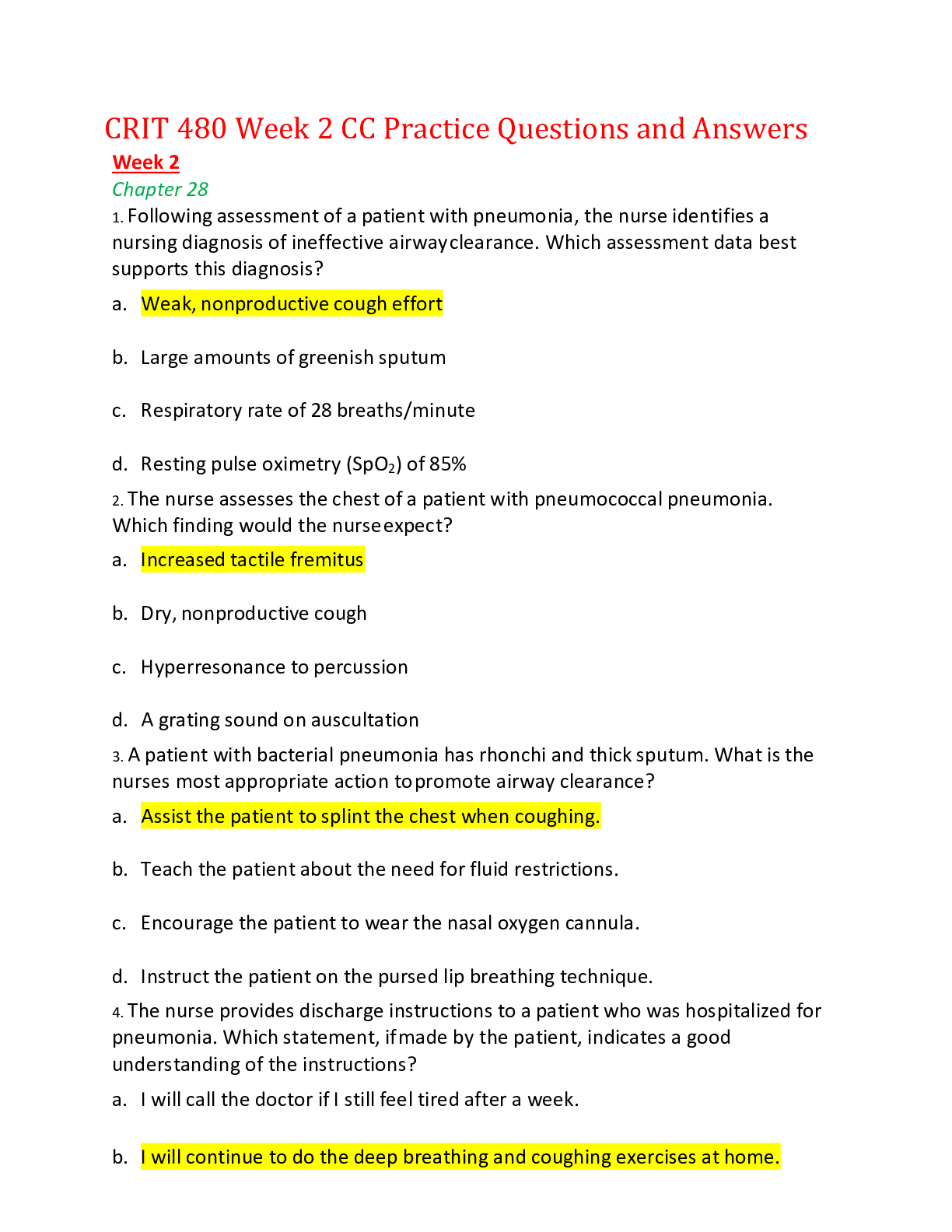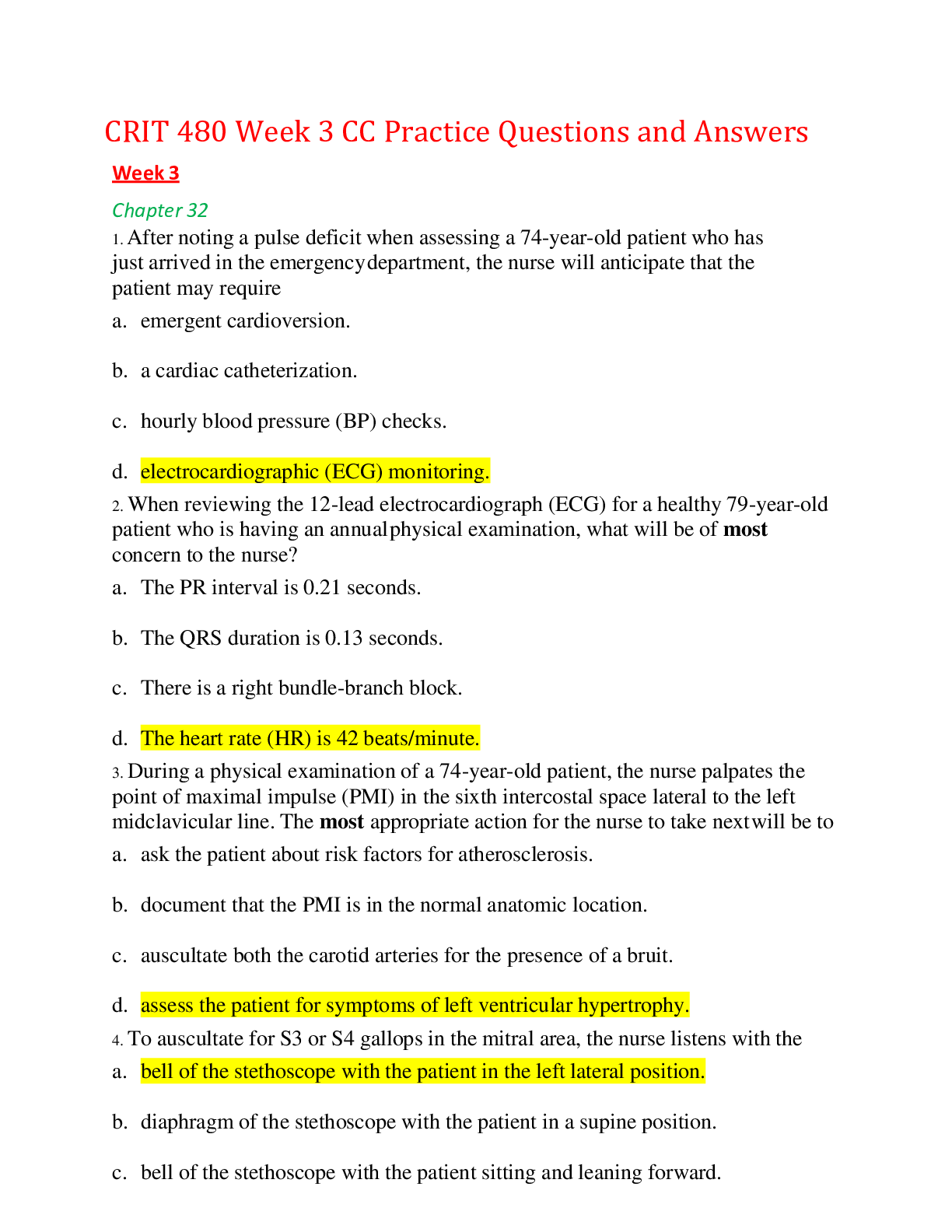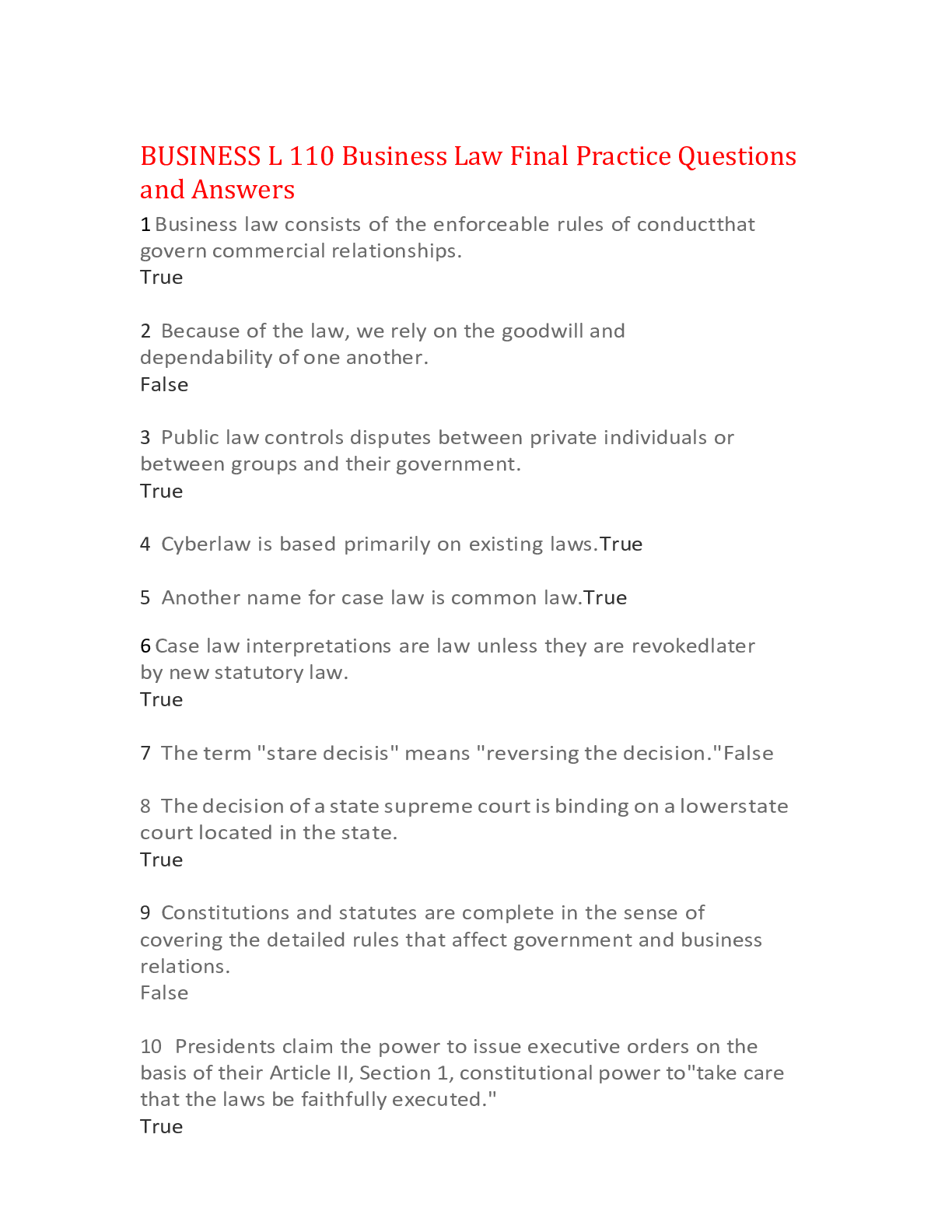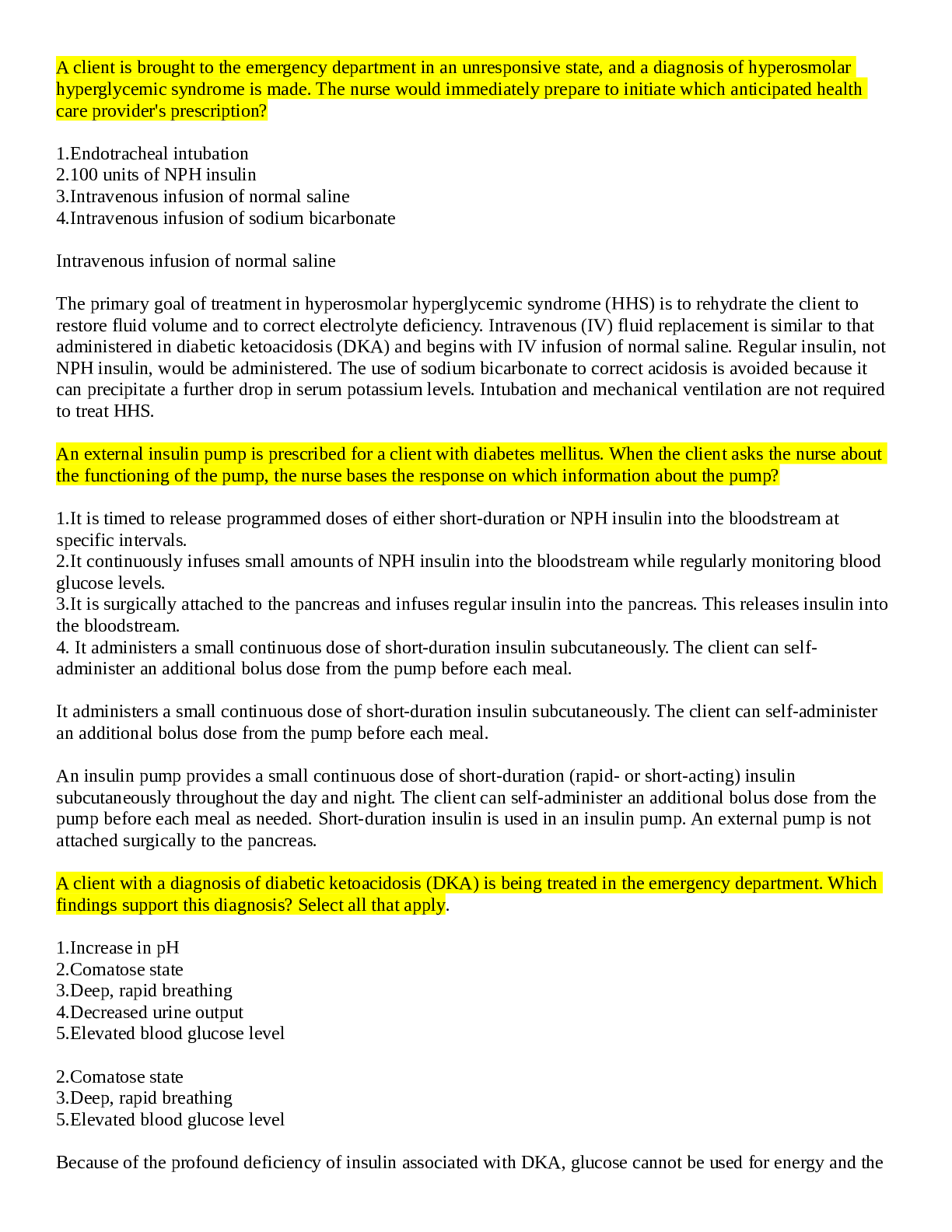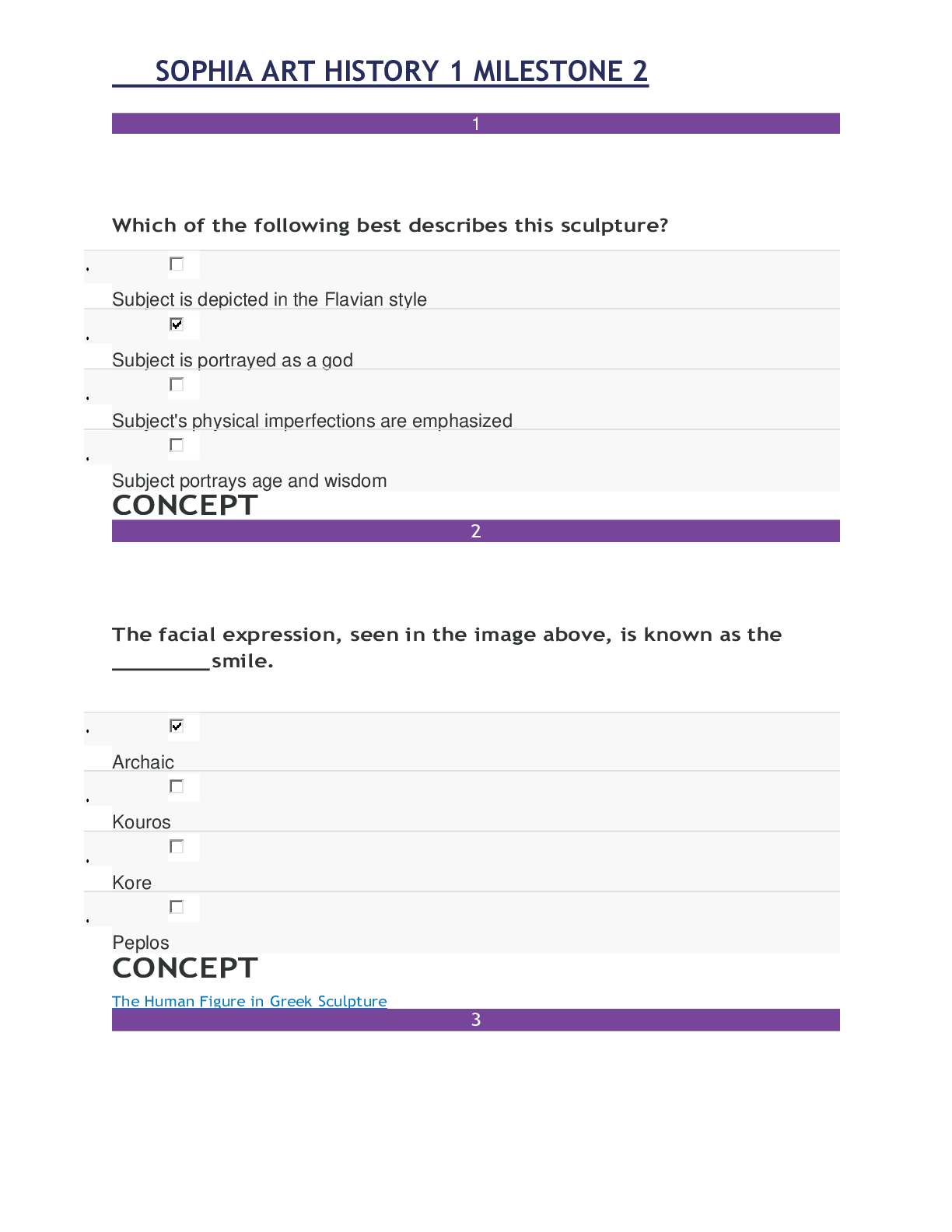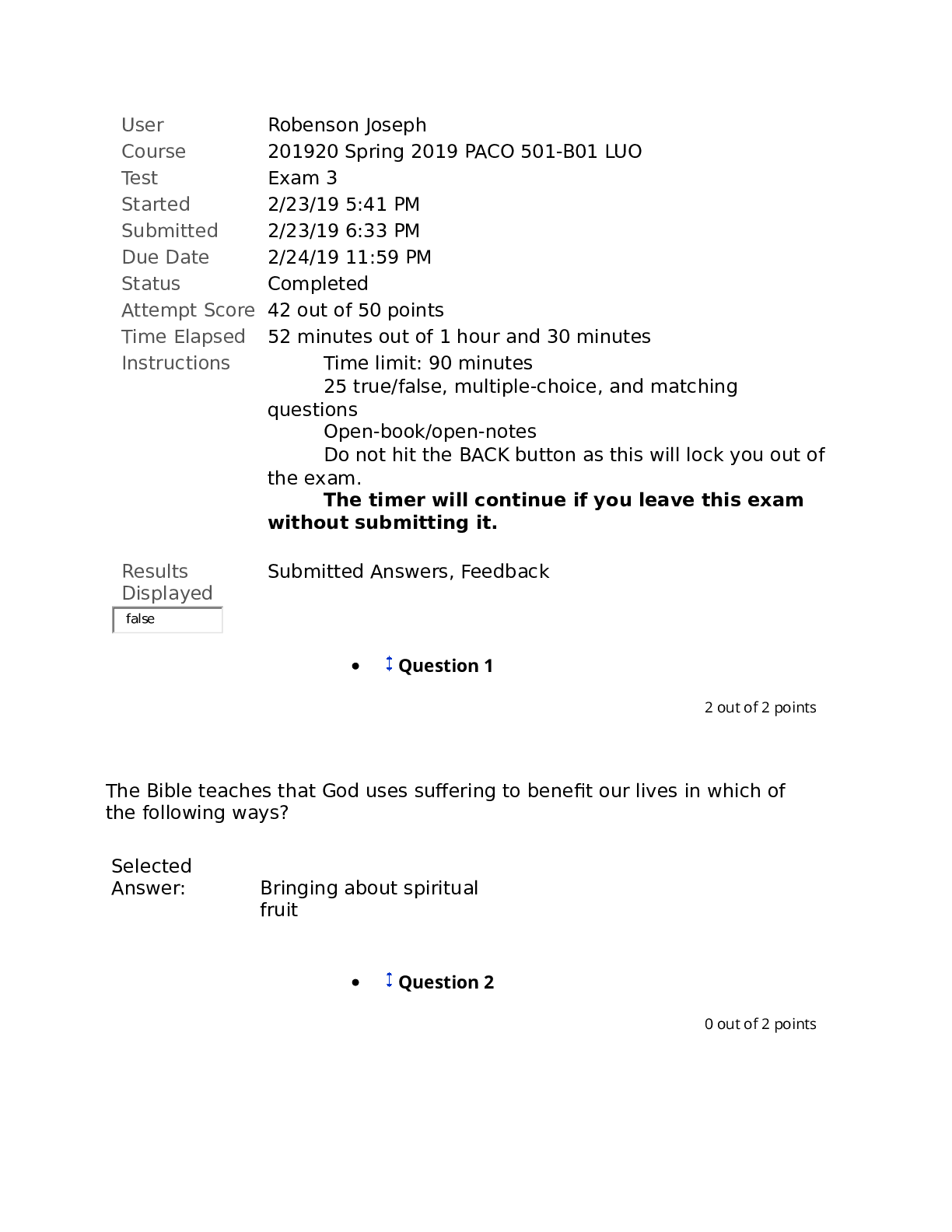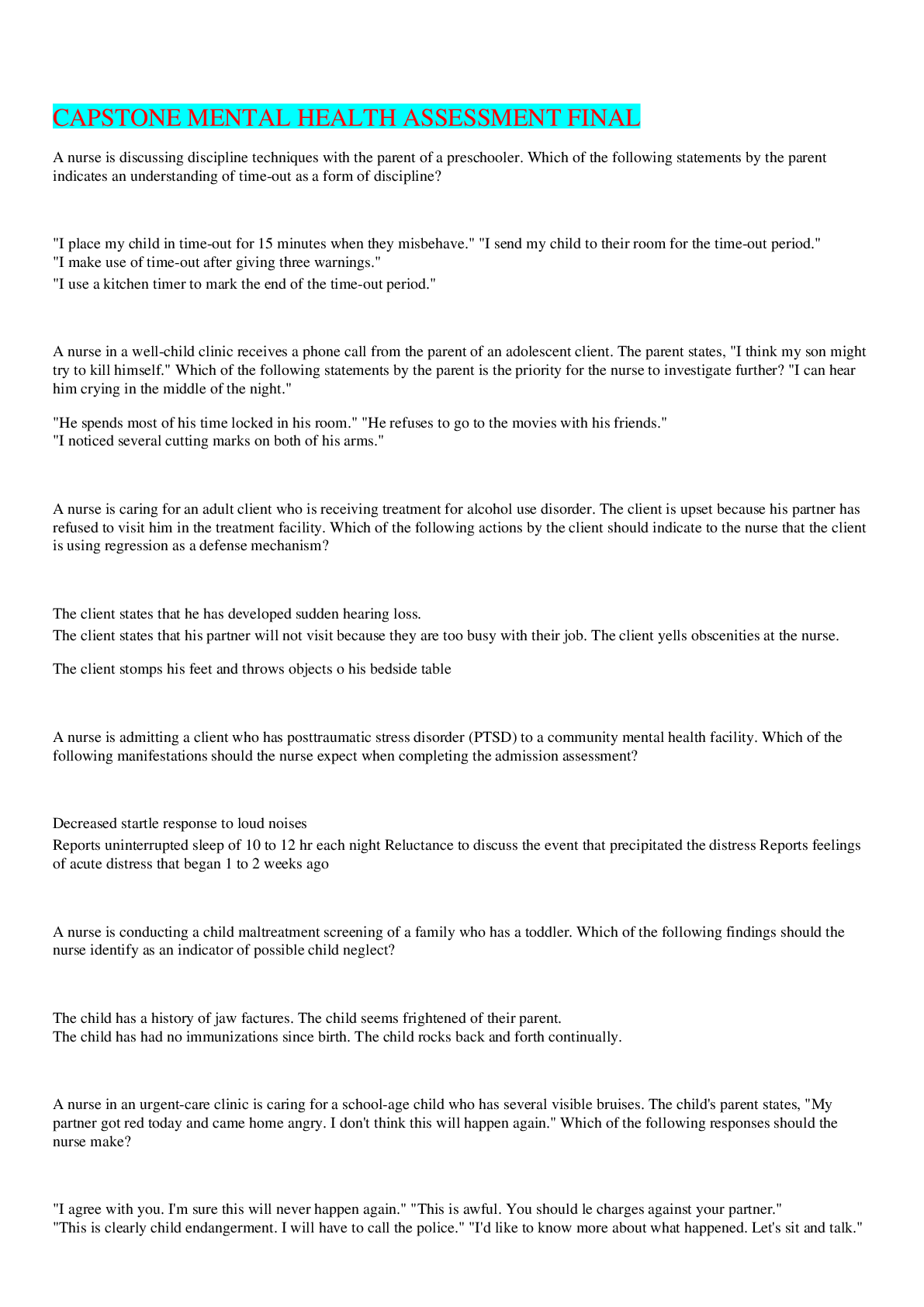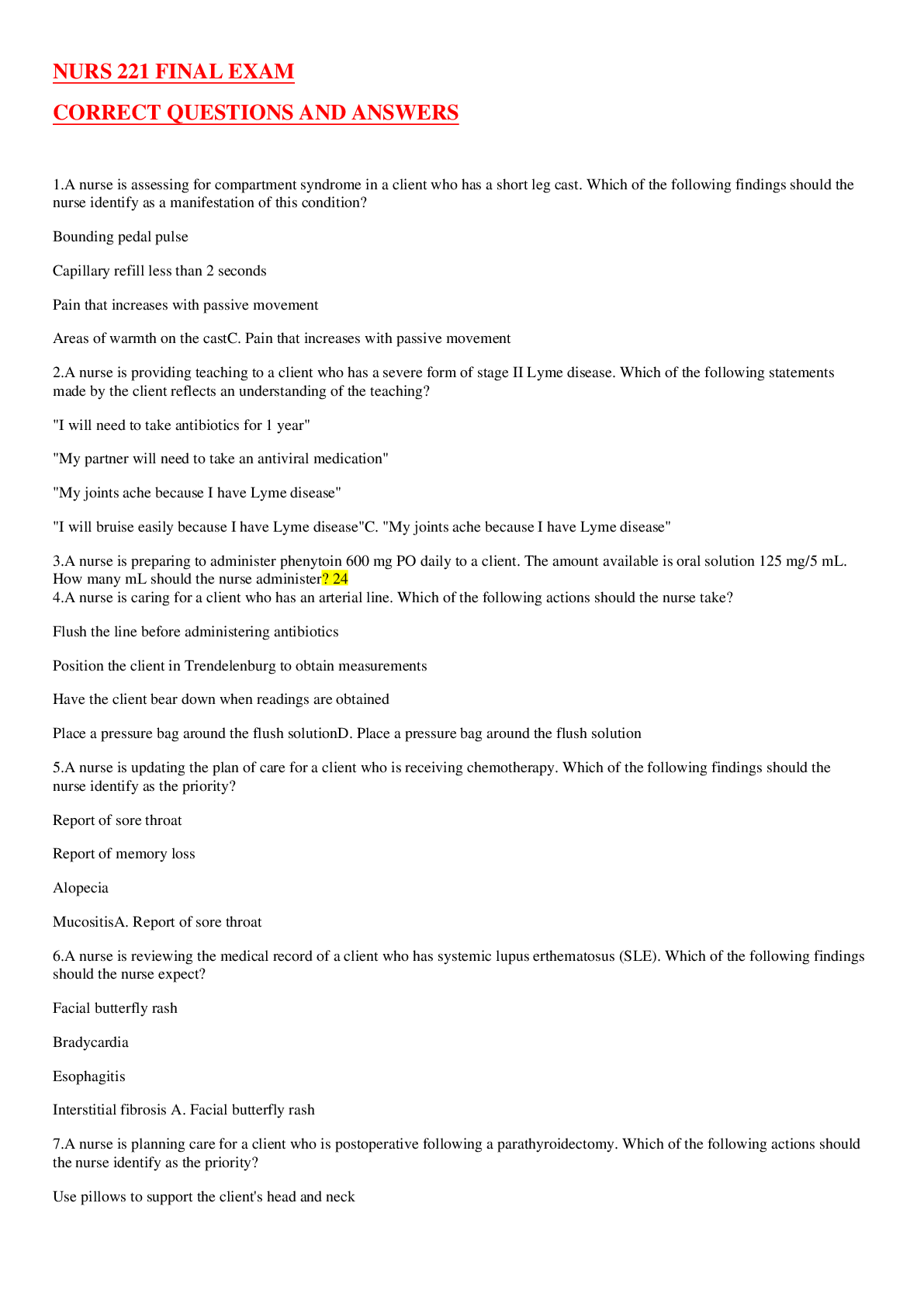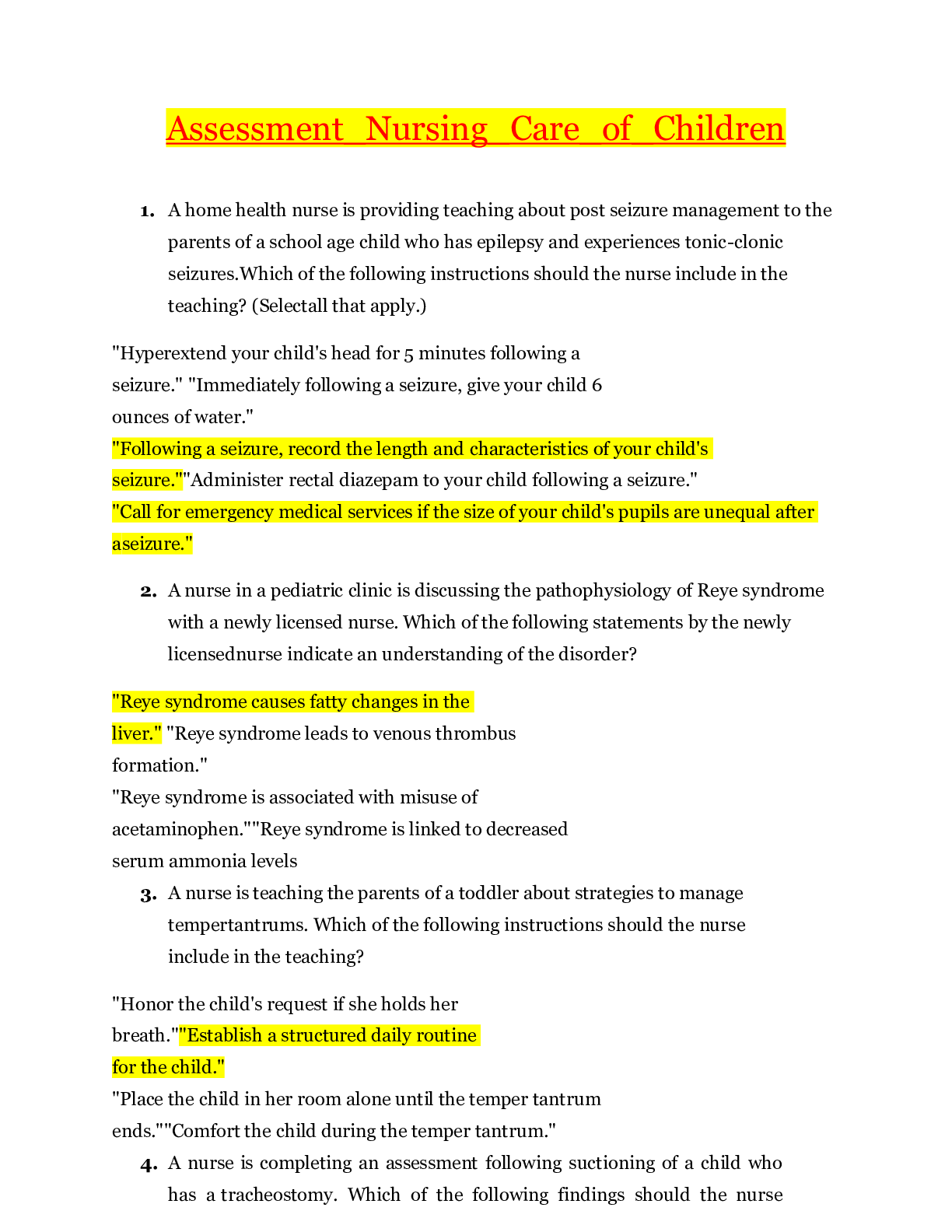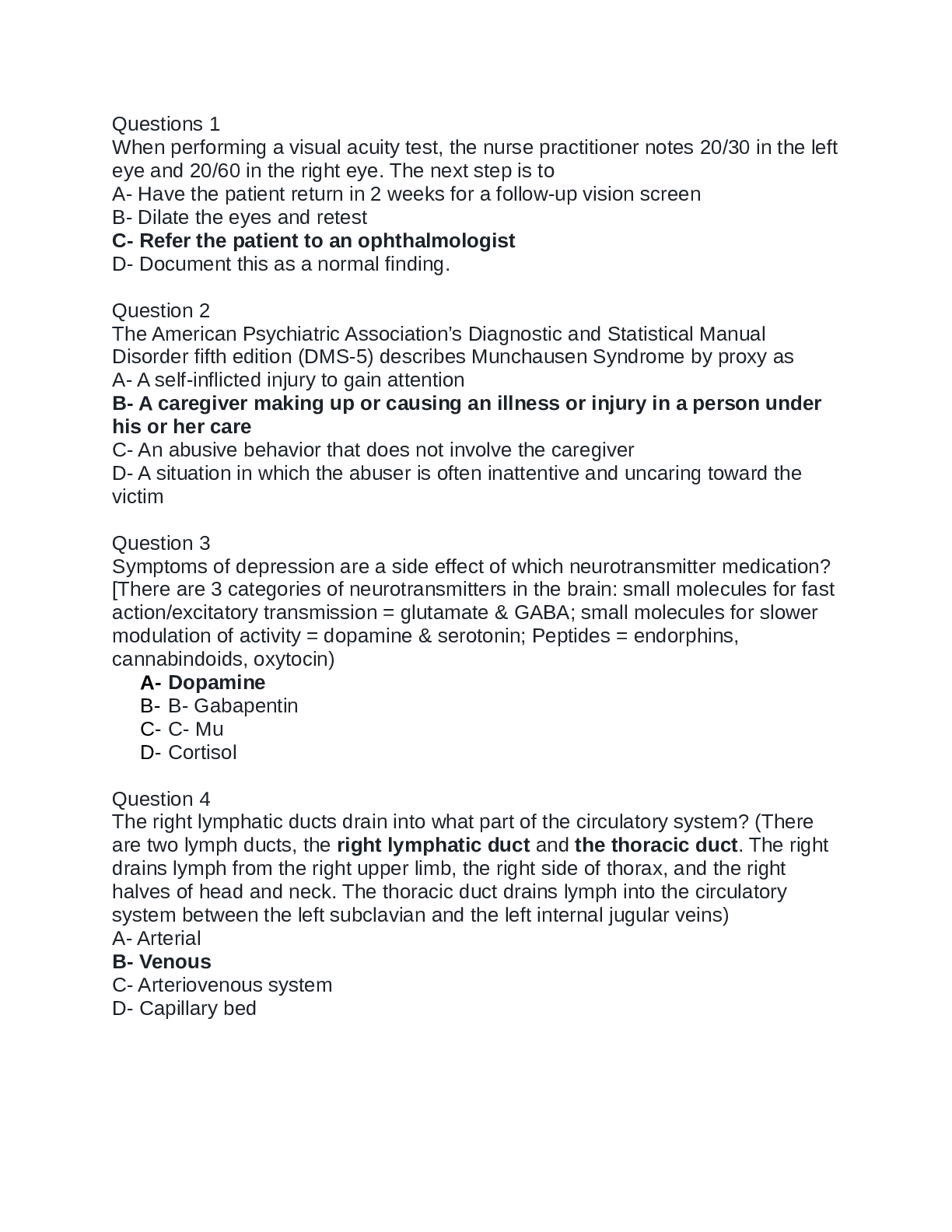US History 1 Milestone 2 Questions and Answers,100% CORRECT
Document Content and Description Below
US History 1 Milestone 2 Questions and Answers 1 Which of the following quotations—from documents associated with the American, French and Haitian revolutions—exemplifies social contract the... ory? "When in the Course of human events, it becomes necessary for one people to dissolve the political bands which have connected them with another..." “The demands of the citizens may always tend toward maintaining the constitution and the general welfare.” "The Independence of St. Domingo is proclaimed. Restored to our primitive dignity, we have asserted our rights; we swear never to yield them to any power on earth..." “Oh! Landholders of St. Domingo, wandering in foreign countries by proclaiming our independence, we do not forbid you, indiscriminately, from returning to your property...” CONCEPT The American Revolution in a Global Context 2 Which of the following was part of the Townshend Acts? Colonists could send representatives to Parliament, but they could not vote on matters that didn't affect the colonies. The British army would only be funded with taxes raised in the colonies, which gave colonists an incentive to pay. Three additional vice-admiralty courts were established to more efficiently prosecute smugglers without juries. Parliament enacted a trade embargo that prevented British merchants from selling textiles in the colonies. CONCEPT The Townshend Acts and Protest 3 What was one difficulty associated with the Sugar Act of 1764? Colonists played a relatively small role in the molasses trade but assumed most of the cost. Colonists had a difficult time coming up with the precious metals required by the act. Colonists worried whether the government could protect them from natives with only half its revenue. Colonists felt that vice-admiralty courts violated the English Bill of Rights. CONCEPT The Aftermath of the French and Indian War 4 Which of the following motives was common among Loyalists? Many Loyalists remained faithful because they were native to Britain and had representation. Many Loyalists remained faithful to King George because of ideology or personal factors. Many Loyalists remained faithful because they didn't think the colonies could win a war. Many Loyalists remained faithful because King George promised them representation. CONCEPT Choosing Sides in the American Revolution 5 George Washington was an important figure in the Revolutionary War. Select the statement that correctly identifies him. "I led my troops across the Delaware River to Trenton, New Jersey, on an early morning raid the day after Christmas." “I transferred 15,000 troops to the Chesapeake Bay and moved to take Philadelphia, Pennsylvania.” “I arrived in America as a volunteer, but was soon promoted to an officer’s position in the Continental Army.” “I realized that to defeat the British in the south, I had to divide my troops, and the strategy worked.” CONCEPT The American War for Independence, 1775 - 1783 6 Which of the following statements about the French and Indian War is true? Though England's government back in London directed much of the war, little money and few troops were sent to help the colonists. What had started as tension between colonists and Native Americans escalated into a global war between England and France. The war was primarily between the French and certain native tribes, with the English supporting both sides at various points. The war started as a dispute between native tribes, with England and France getting involved on opposite sides to win allegiance from the natives. CONCEPT The French and Indian War 7 Which statement reflects an idea or attitude associated with the Enlightenment? “We are citizens of the world and open-minded to new ideas and ways of thinking.” “Our traditions are sacred and have been proven true by our own experiences.” “Religious figures remain the traditional and most trusted sources of truth and understanding." “God gave the right to rule to the king, and we must never question his will.” CONCEPT The Enlightenment and the Colonies 8 Which statement represents support for the theory of actual representation? "According to our principles, only colonial assemblies may impose internal taxes. Parliament only has the authority to regulate commerce." "Every Englishman is taxed, and many do not send representatives to Parliament." "Most British citizens do not meet the property requirements necessary to vote in elections." "Colonists do not have equal standing before Parliament and are therefore subject to all of its laws." CONCEPT Think About It: Is Taxation Un-American? 9 Based on Olaudah Equiano's experiences as a slave, which of the following statements is true? The fear of being captured and sold into slavery was not really a feature of daily life in West Africa. Capture and transport were dangerous and traumatic experiences for Africans. African adults were targeted and could do little to prevent capture by slave traders. Only Europeans participated in taking Africans captive and selling them into slavery CONCEPT American Slavery from an African Perspective 10 Which of the following groups comprised the gentry in the Southern colonies? The free working class who wanted to be as distinct as possible from slaves. Those who were educated but did not own land and thus could not vote. Wealthy landowners who modeled themselves after British aristocracy. Landowners who had earned their status through indentured servitude. CONCEPT Growth of the Colonies 11 Read the quotation about a vision for American society after the American Revolution. “An equality of property, with a necessity of alienation, constantly operating to destroy combinations of powerful families, is the very soul of a republic—while this continues, the people will inevitably possess both power and freedom; when this is lost, power departs, liberty expires, and a commonwealth will inevitably assume some other form." According to this speaker, what is at the root of a republican society? Racial equality Widespread ownership of land Natural liberty Religious freedom CONCEPT Think About It: What Did the American Revolution Mean? 12 Which of the following describes slavery in the Southern colonies in the 18th century? Slaves were sailors, dockworkers and domestic workers. Slaves could own property and pass it on to their children. Strict race-based laws were passed to control perceived threats. Slavery was less prevalent because of the absence of cash crops. CONCEPT Think About It: What Was the Importance of Slavery to the Colonies? 13 Which of the following was a positive effect of the Navigation Acts for English colonists? Goods could be bought from or sold to markets in other countries. Colonists temporarily enjoyed a greater voice in government. Goods shipped by sea enjoyed the protection of the English Navy. Goods could be sold for fixed prices guaranteed by the government. CONCEPT England Strengthens its Imperial Colonies 14 What did Parliament intend to accomplish with the Tea Act of 1773? By increasing penalties for smugglers, colonists would be pressured to buy British tea from imperial merchants. By reducing taxes, imperial merchants could undercut competition from smugglers and still increase their profits. By increasing penalties for smugglers, colonists would think twice the next time they wanted to protest a law. By reducing taxes, colonists would be appeased and perhaps end their boycott on tea and other British imports. CONCEPT Boston Tea Party 15 Which of the following acts of the First Continental Congress foreshadowed the creation of an independent colonial government? The Congress petitioned George III as though it were a foreign government seeking aide. The Congress recommended that each colony build militias to defend against the British. The Congress imposed its own taxes on British imports and denied representation to the crown. The Congress declared independence from Britain and recommended that a constitution be drafted. CONCEPT Path to Revolution 16 Which of the following was a reason why the French posed a challenge to English colonial dominance in North America? They engaged in simultaneous negotiations with several European powers to protect their access to lands around the Great Lakes. They built forts and missions with the support of Spanish missionaries to increase their influence, and to protect themselves from English invasion. They sustained strong ties with indigenous people whose lands bordered English colonies. They led uprisings that threatened the economy and the social order in the English colonies. CONCEPT The Challenges to the English Empire 17 Why were protests against the Stamp Act effective in persuading British merchants to oppose the tax? The boycotts by the Daughters of Liberty hurt businesses back in Britain. The British elected new members to parliament who opposed taxation of the colonies. Violent protests had spread to Britain itself and threatened to upset social order. The king opposed increased taxation and removed those responsible for the Stamp Act. CONCEPT The Stamp Act [Show More]
Last updated: 1 year ago
Preview 1 out of 7 pages
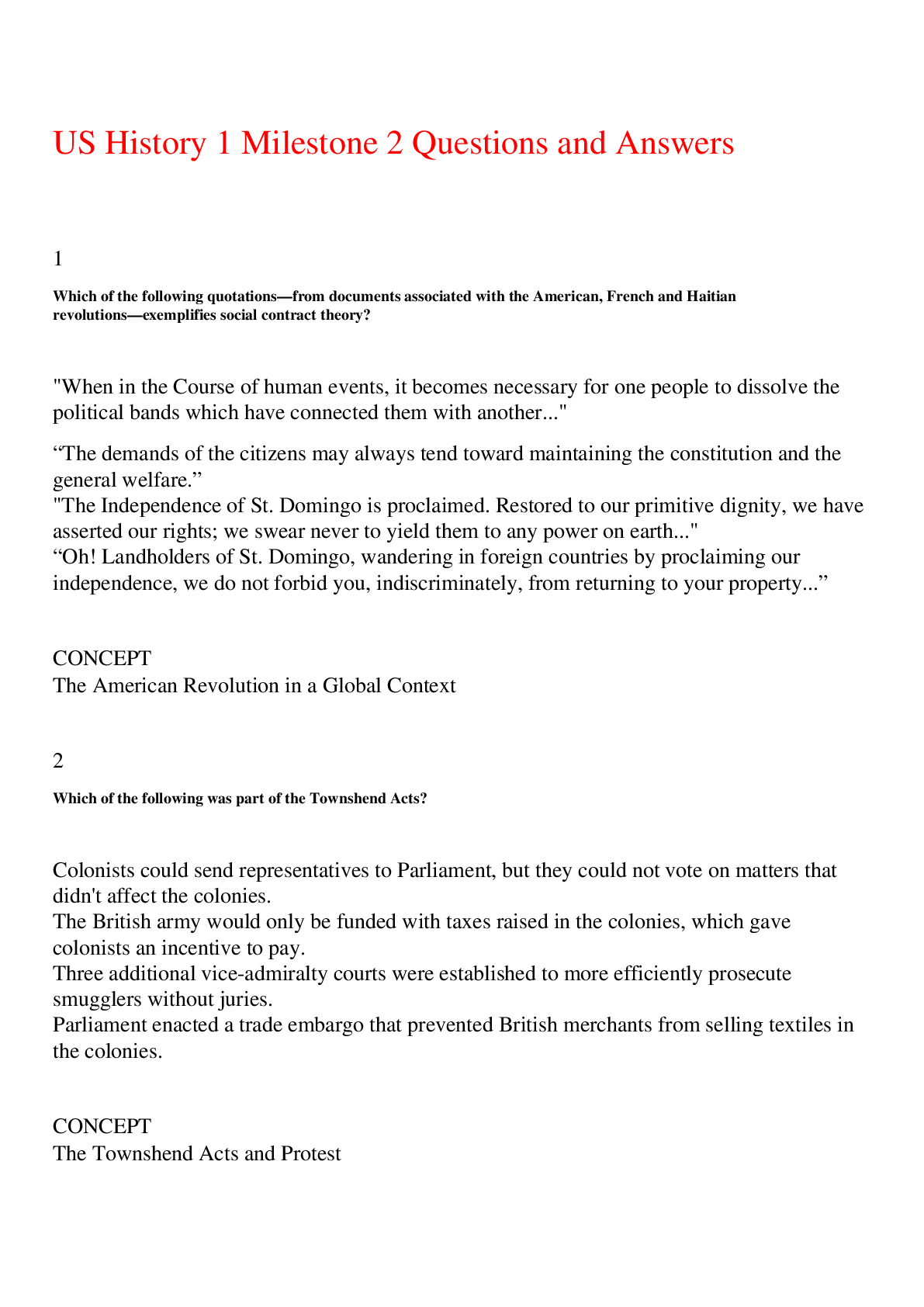
Reviews( 0 )
Document information
Connected school, study & course
About the document
Uploaded On
Apr 14, 2021
Number of pages
7
Written in
Additional information
This document has been written for:
Uploaded
Apr 14, 2021
Downloads
0
Views
31

